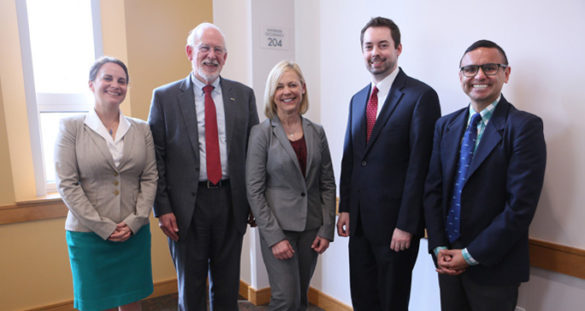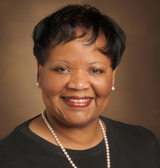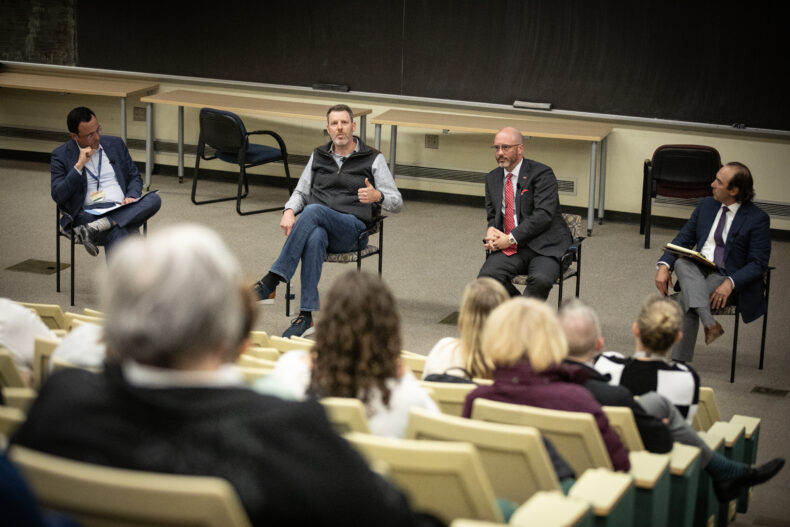
With lawmakers in the nation’s capital having reached a political impasse over replacement of the Affordable Care Act, it’s unclear just where health care policy may be going. The challenges of dealing with this uncertainty were the subject of Monday’s panel discussion at Vanderbilt featuring state and hospital industry officials.
The event was sponsored by the Department of Health Policy, the Center for Medicine, Health and Society and University Courses, a Vanderbilt program fostering trans-institutional courses.
Wendy Long, director of TennCare and of Health Care Finance and Administration for the State of Tennessee, said she would like to see greater flexibility for states in determining how federal health care dollars are applied.
“From a state perspective, we think we would be willing to accept a slightly less advantageous funding model in exchange for flexibility. We really feel that our hands are tied from operating the Medicaid program in Tennessee, for example, in a way that is consistent with state priorities and state values,” she said.
Long sees financial risk ahead if Republican proposals to cap federal Medicaid spending aren’t accompanied by new flexibility for states in deciding who receives coverage and which services are covered.
Eric Harkness, director of the Office of Health Policy at the Tennessee Department of Health, noted that health care costs are driven largely by chronic disease, which in turn is largely determined by physical activity, diet, smoking and substance abuse — “the big four,” as he termed them.
Government policy is only part of the solution, and society needs to devote far more attention to prevention, he argued.
Solutions “are going to go back to human nature, they’re going to have to go back to how we operate, how we socialize as a species, the incentives and the way we construct environments to help us make the healthy choice the easy choice, or even better, the default choice.
“That’s how we’re going to start to get at bending that health care cost curve,” he said.
Craig Becker, president and CEO of the Tennessee Hospital Association, stressed that Tennessee needs to find a solution to keep insurance companies in the health insurance exchange set up under the Affordable Care Act. Some 200,000 Tennesseans currently participate in the exchange.
“The problem with it for the hospital field is that we can’t take a walk. We see these patients, they come in whether they’re insured or not insured. Throwing another 200,000 people on the uninsured rolls would certainly have a devastating effect, particularly for safety net hospitals such as here at Vanderbilt, and for our small and rural hospitals,” he said.
Becker hopes Congress will see its way to keeping and repairing the Affordable Care Act. “I think that the moderates will probably prevail in the end, because they have to do something. But right now it’s still very much ‘stay tuned.’”















